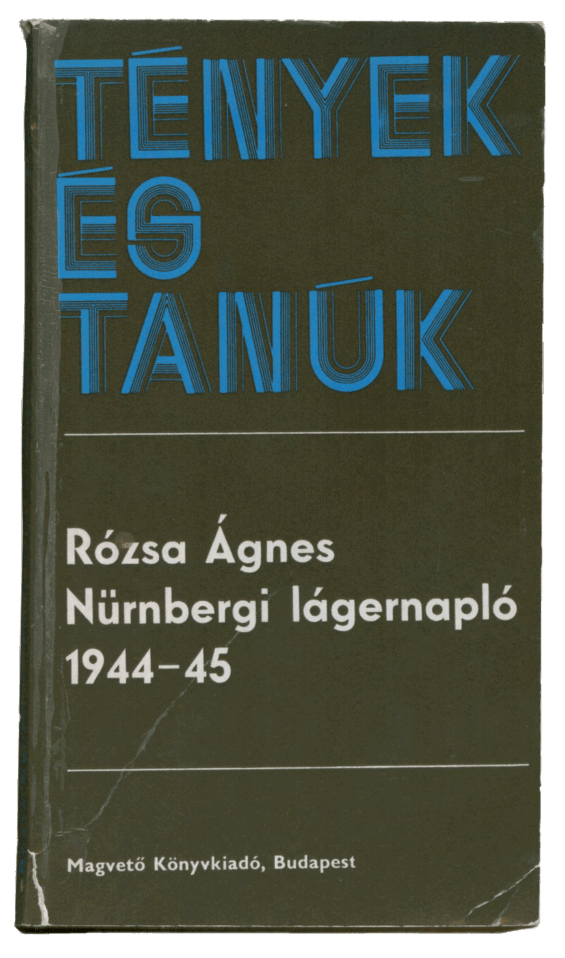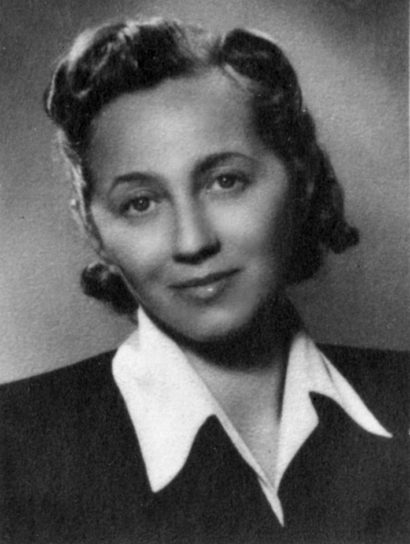Ágnes Rózsa
born October 17, 1910
![]()
Ágnes Rózsa, 1956 (testimon publishers / Ivan Rohonyi)
During the 1950s, Ágnes Rósza was the principal of a high school for girls in Cluj (Kolozsvár).
A Diary against Despair
Ágnes Halász was born in Oradea (Hungarian: Nagyvárad) in Romanian Transylvania. Most of the inhabitants of Oradea were Hungarian; more than a fourth were Jewish. Ágnes Halász grew up in a Jewish-Hungarian family. After completing her studies in her homeland and France, she worked as a journalist and teacher. She married Gyula Schapira in 1938.
In March 1944, the Germans occupied Hungary. Shortly afterwards, they began the deportation of approximately 430,000 Hungarian Jews. Three-quarters of them were killed in the gas chambers at Auschwitz-Birkenau within an extremely short period.
In May 1944, Ágnes Schapira arrived at Auschwitz on one of the deportation trains. An SS doctor selected her on the ramp as “capable of work.” After five months, she was transported to the Flossenbürg subcamp at the Siemens Schukert Works in Nuremberg. While there, Ágnes began to secretly write her husband letters in the form of a diary. She carried her writings with her constantly. They strengthened her will to live and became her most important possession.
After her liberation in 1945, Ágnes Schapira and her husband were reunited in their homeland. On the urging of her second husband Jenö Rósza, she published her writings in 1971. Ágnes Rósza died on July 30, 1984 in Cluj (Kolozsvár), Romania.

Second edition of the book by Ágnes Rósza, Nürnbergi lágernapló (Diary of a Nuremberg Concentration Camp), Budapest 1978 (Flossenbürg Concentration Camp Memorial)
The title of the German edition was “Solange ich lebe, hoffe ich” (As Long as I Live, I Continue to Hope), published in 2006.
